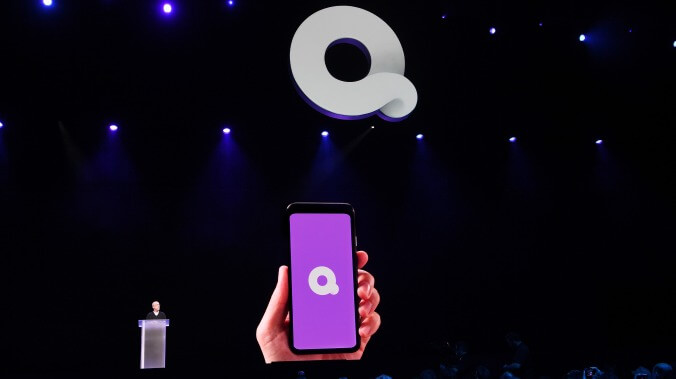Quibi, a billion-dollar startup, might have to raise a lot more money to stay afloat

We swear we did not originally intend on charting Quibi’s startling downward spiral since its April 6 launch. However, when you base a billion-dollar streaming startup on the very narrow possibility that people might want to watch Chrissy Teigan cosplay as a judge during smoke breaks, it’s hard not to temper our curiosity. The struggling platform has practically served up the blueprint for what not to do: Don’t launch a major streaming service with zero brand recognition in the middle of a pandemic (not that brand recognition is doing much for HBO Max). Don’t allow your legal team to bully harmless, small-time creators—especially when they are freely dishing out the positive P.R. you so desperately need. Definitely don’t limit your content to mobile-only viewing when everyone is mere feet away from their television screens for months on end. The parade of ill-conceived decisions has culminated in a hefty price tag for CEOs Jeffrey Katzenberg and Meg Whitman. But perhaps the most outlandish development since Quibi’s inceptions comes courtesy of a report from The Wall Street Journal, which notes that the streamer will likely need to raise hundreds of millions of dollars just to stay afloat.
On Sunday, WSJ’s Benjamin Mullin released a report about Katzenberg and Whitman’s tumultuous working relationship, which outlines the many ways that the former’s micromanaging and dictatorial behavior challenged Whitman’s professional resolve, causing her to almost leave the company before launch. As Mullin writes, Quibi’s relatively unsuccessful start has further strained the duo, as they now have to face disappointed investors and an underwhelmed public while they “[fight] for relevance in a crowded field.” But the real kicker lies in the stunning financial optics, expressed by both dollars and downloads:
At its current pace, Quibi will sign up fewer than two million paying subscribers by the end of the app’s first year, a person familiar with its operations said, well under its original target of 7.4 million. Quibi’s app download numbers have been falling in recent weeks, according to analytics firm Sensor Tower. Daily downloads peaked at 379,000 on its April 6 launch day but didn’t exceed 20,000 on any day in the first week of June, according to Sensor Tower.
That estimate—fewer than 2 million—equates to less than 30% of the company’s original goal, which is especially egregious considering the fact that we as an audience have had less than nothing else to do for the past few months. (The steady decrease in downloads has been pinned to a number of things, including the pandemic and the weeks-long protests. Others experts say it has more to do with the lack of exceptional content, as mentioned in the L.A. Times.) In terms of dollars and cents, Katzenberg and co. raised over $1.75 billion prior to launch, making it one of the most well-funded media startups. Quibi essentially blew through that pool of cash thanks to A-list talent, high-end marketing, and content development. Since there’s no telling what the market will look like after all these free trials run out, the chances of having to raise even more gobs of money look pretty high, according to WSJ:
The company raised an additional $750 million earlier this year, but expenses have continued to mount. By the third quarter of 2020, Quibi estimated, it will have spent $1 billion. The company expects it will have to raise at least $200 million of additional funding by the second half of 2021.
Quibi is continuing to push new content, including comedic “quick bite” The Now, starring Dave Franco, O’Shea Jackson, Alyssa Milano, and Bill Murray, just to name a few. Also, the Reno 911! revival provided a small boost for the streamer after it premiered in May. Whether any of this effort will be enough to keep Quibi alive remains to be seen. Hey, at least they didn’t go with the original name:
The executives wanted a name that captured the company’s strategy. Mr. Katzenberg was initially partial to “Omakase,” a term used to describe high-quality sushi selected by the chef. Ms. Whitman wasn’t in favor. The two agreed to set it aside.